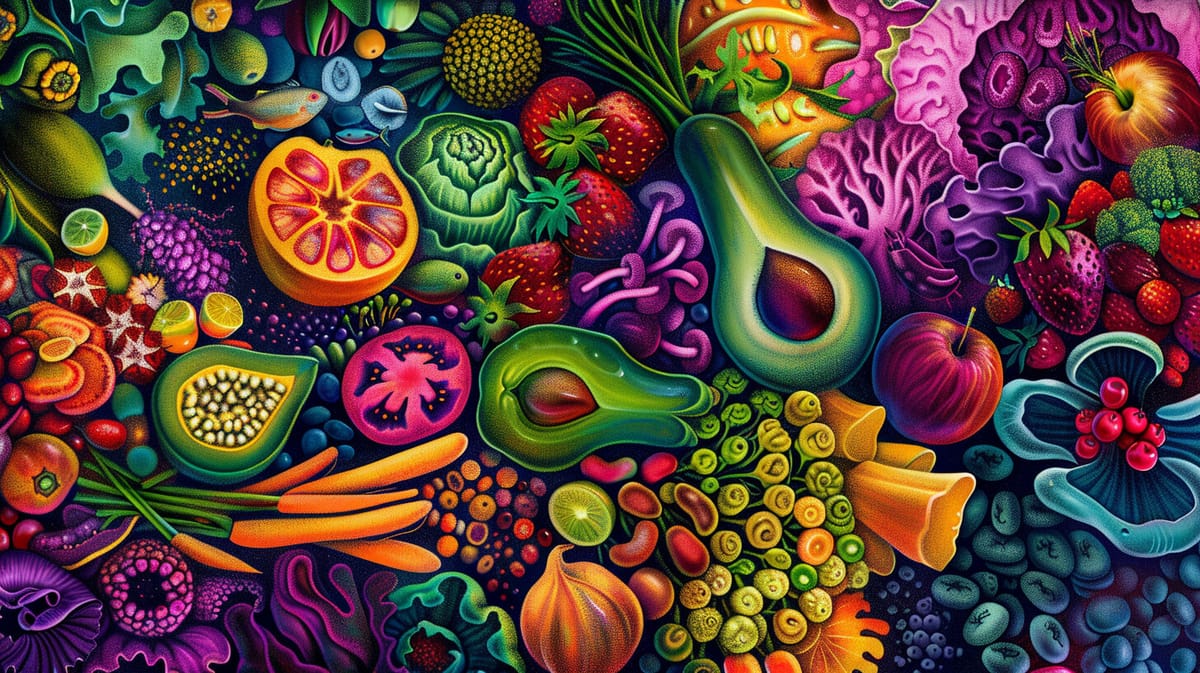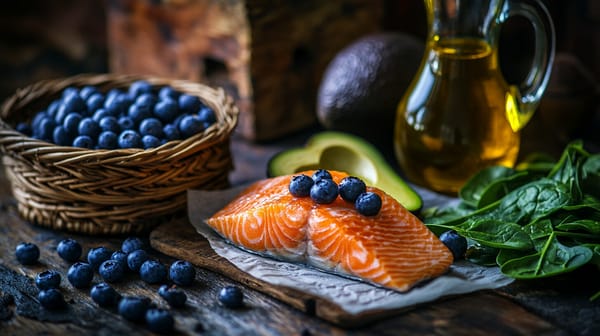Unlocking Optimal Gut Health: 15 Superfoods to Revolutionize Your Digestive Wellness

Introduction
The gut microbiome, consisting of trillions of microorganisms residing in the gastrointestinal tract, plays a crucial role in overall health and well-being. Research has linked a healthy gut microbiome to improved digestion, enhanced immune function, better mood regulation, and reduced risk of chronic diseases. By making strategic dietary choices and incorporating specific gut-friendly foods, you can promote the growth of beneficial bacteria and optimize your digestive wellness.
The Power of Fiber-Rich Foods
Fiber is a key component in maintaining a healthy gut microbiome. Apples, rich in pectin (a type of soluble fiber), can improve insulin resistance, lower cholesterol levels, and promote feelings of fullness. Bananas contain pectin and resistant starch, which serve as prebiotics to nourish beneficial gut bacteria. Beans, particularly black beans, are excellent sources of fiber that support intestinal barrier function and protect against disease-causing compounds.
Cruciferous Vegetables and Leafy Greens
Cruciferous vegetables like Brussels sprouts, broccoli, cauliflower, and cabbage contain prebiotic fibers that feed probiotics in the gut. While some people may experience bloating after consuming these vegetables, gradually increasing intake and pairing them with probiotic-rich foods can alleviate discomfort. Leafy greens such as kale, spinach, and chard are low in calories but packed with fiber, vitamins, and minerals. Cooked greens tend to have a higher fiber content compared to raw greens.
Probiotic-Rich Foods
Fermented foods like sauerkraut, kimchi, and pickles are excellent sources of non-dairy probiotics. However, it's important to read labels carefully to ensure the presence of live cultures. Kefir, a fermented milk drink, contains a wide variety of beneficial bacteria and yeast strains that contribute to gut health. Yogurt is another probiotic powerhouse, containing Lactobacillus and Bifidobacterium strains. Opt for plain, unsweetened yogurt to avoid the detrimental effects of added sugars on gut bacteria.
Protein and Healthy Fats
Fatty fish like salmon and sardines are rich in omega-3 fatty acids, which have anti-inflammatory properties and can increase gut microbiome diversity. These healthy fats also help strengthen the gut lining and feed beneficial bacteria. Tempeh, a fermented soy product, is an excellent plant-based protein source that stimulates the growth of gut bacteria. Nuts such as almonds, walnuts, and pecans provide fiber and have been shown to positively impact the gut microbiome.
Whole Grains and Prebiotic Foods
Incorporating whole grains like whole wheat, bulgur, oats, and brown rice into your diet can improve gut microbiota. Studies have found that whole-grain diets increase the variety of gut bacteria, boost immune function, and reduce inflammation compared to refined grain diets. Prebiotic foods like sunchokes (Jerusalem artichokes) and chickpeas contain fibers that feed beneficial gut bacteria and offer potential health benefits such as improved blood cholesterol and blood sugar management.
Conclusion
Optimizing gut health through dietary choices is a powerful strategy for overall well-being. By incorporating a diverse range of fiber-rich foods, probiotic-rich foods, healthy fats, and prebiotics, you can promote the growth of beneficial gut bacteria and support digestive wellness. Remember to gradually introduce new foods, listen to your body's responses, and consult with a healthcare professional if you have specific concerns or underlying health conditions. Embracing a gut-friendly diet can be a transformative step towards unlocking optimal health and vitality.




